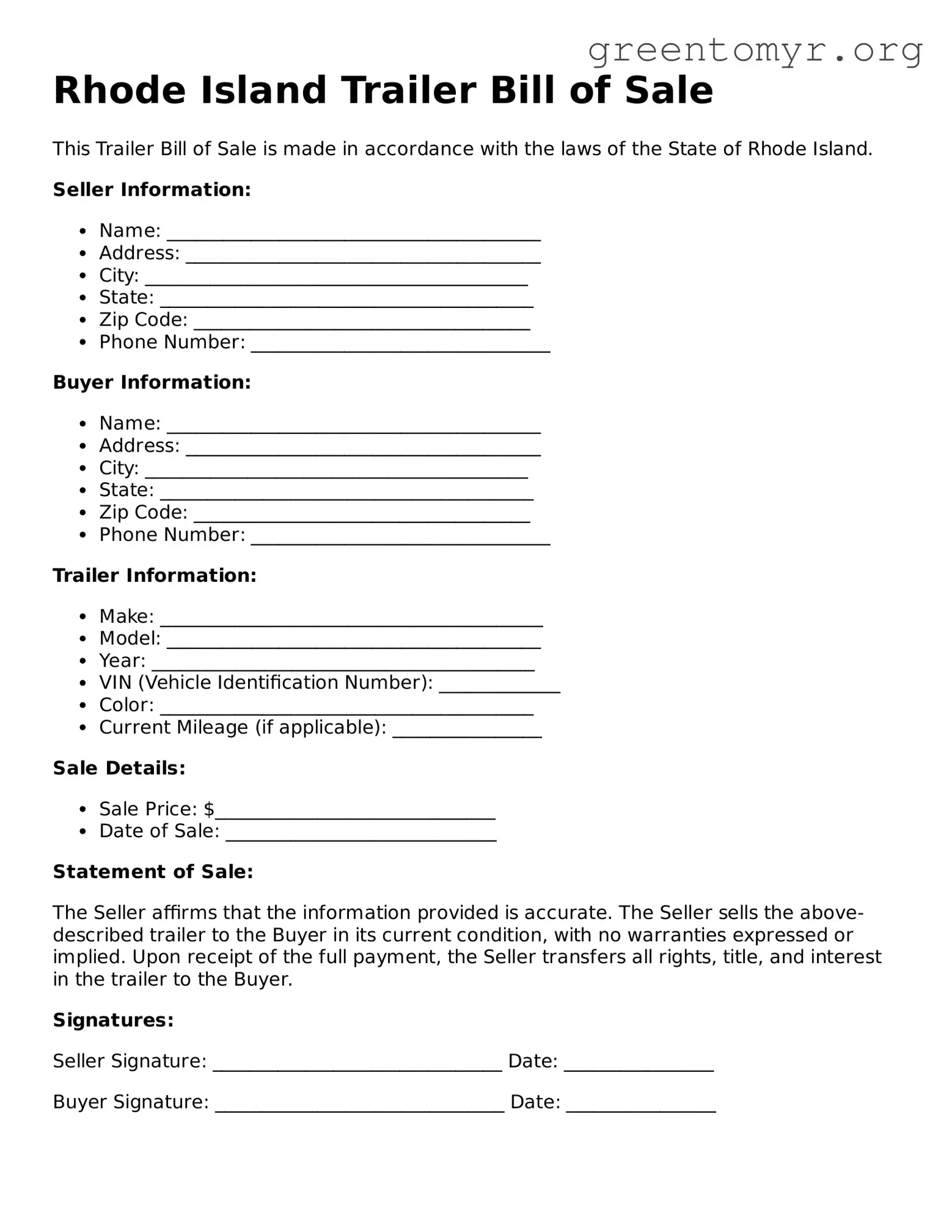Rhode Island Trailer Bill of Sale
This Trailer Bill of Sale is made in accordance with the laws of the State of Rhode Island.
Seller Information:
- Name: ________________________________________
- Address: ______________________________________
- City: _________________________________________
- State: ________________________________________
- Zip Code: ____________________________________
- Phone Number: ________________________________
Buyer Information:
- Name: ________________________________________
- Address: ______________________________________
- City: _________________________________________
- State: ________________________________________
- Zip Code: ____________________________________
- Phone Number: ________________________________
Trailer Information:
- Make: _________________________________________
- Model: ________________________________________
- Year: _________________________________________
- VIN (Vehicle Identification Number): _____________
- Color: ________________________________________
- Current Mileage (if applicable): ________________
Sale Details:
- Sale Price: $______________________________
- Date of Sale: _____________________________
Statement of Sale:
The Seller affirms that the information provided is accurate. The Seller sells the above-described trailer to the Buyer in its current condition, with no warranties expressed or implied. Upon receipt of the full payment, the Seller transfers all rights, title, and interest in the trailer to the Buyer.
Signatures:
Seller Signature: _______________________________ Date: ________________
Buyer Signature: _______________________________ Date: ________________
